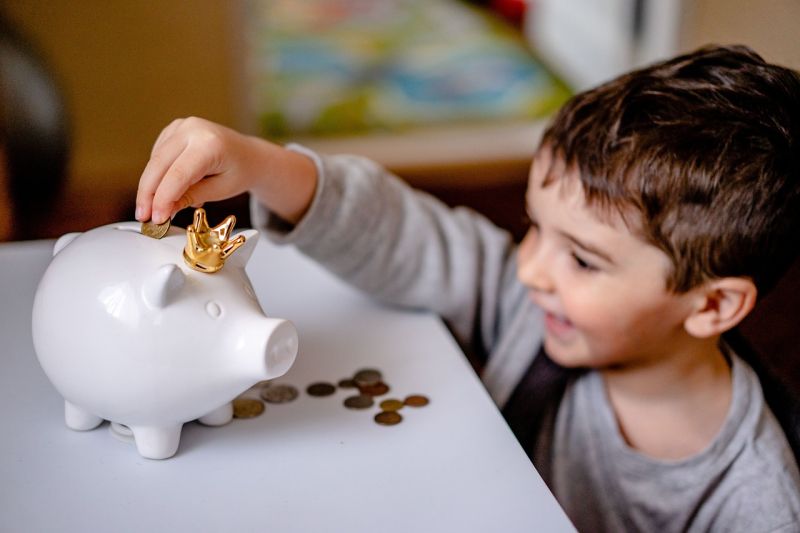03
May 2024
Should you be giving your kids pocket money? Here are the pros and cons
Giving your children pocket money teaches them valuable life lessons such as how to earn and how to save. It also teaches them that money isn’t infinitely available, so they’ll have to be smart with their spending.
The financial lessons they learn as a child will stick with them for the future. In fact, research from Cambridge University revealed that money habits are usually formed in early childhood and that much of our approach to money is set by the age of seven.
But at what age should children get pocket money and how much should you give them?
There’s no set-in-stone answer on when to start giving a child pocket money, but a good rule of thumb is to start when your child first attends school. It’s best to start small, especially if they’re young – a few pounds per week is a good starting point. You can gradually increase this as they get older or whenever your financial situation allows.
The amount of pocket money you provide should tie in with what you can afford, as well as what the pocket money is expected to cover. For example, once they receive pocket money, will they need to buy their own cinema tickets or stationery for school? Will you expect them to save up towards school trips or birthday presents for their friends? In these situations, it might be necessary to give them a higher amount to account for their savings pot.
If you don’t have much money to spare, don’t feel pressured to give your kids a large amount. Even a pound coin or two a week can give them the feeling of independence and help to teach them the value of money. The most important thing is that you set a specific amount and stick to it for a set amount of time, such as until their next birthday or the start of a new school year. Otherwise, you could accidentally teach them that they can get more money as and when they want, simply by asking for it.
Although it’s nice to start with physical coins or cash, consider opening up an account for your kid(s), too. This could help them to save, rather than spend their money on something right away. GoHenry is a great place to get started – it comes with an app where they (and you) can track their money, as well as videos and quizzes to help them learn money management in a fun and interactive way.
The pros of giving your children pocket money
- Shows kids the value of money: In today’s increasingly cashless society, it’s easy for kids to think money is endlessly available with a quick tap or click of a button. Physically giving them coins or cash will help them realise that money isn’t an unlimited resource.
- Teaches money management: Pocket money helps kids learn how to budget and save up for things they want in the future. They’ll learn that if they need to save for bigger purchases, they’ll need to avoid smaller, impulse buys, which is an extremely valuable skill for when they eventually leave home.
- Teaches moderation: When you first start giving your kids pocket money, they might spend it all at once and wonder why they can’t buy anything more. But this will help them learn moderation and understand that just because they’ve got money, it doesn’t mean they need to spend it all at once.
- Builds independence: Your child’s pocket money is theirs to spend on what they like. Although you’ll be able to offer your advice and guidance, the power is ultimately in their hands. They’ll need to make their own decisions and consider the benefits and consequences of each purchase, which is a great way to build confidence and independence.
The cons of giving your children pocket money
- Financial dependency: Giving your kids too much pocket money could be detrimental to their future financial habits. As well as becoming overly reliant on you for money, they might be less motivated to go out and earn it themselves. The best way to mitigate this is to avoid giving them so much that they never have to save for bigger purchases. Make sure to stick to your boundaries, too. If they spend all their weekly allowance, be firm with the fact that you can’t give them any more until next week.
- Resentment amongst friends: If your child gets more or less than their friends – or even their siblings – it could lead to unhealthy competition and resentment. If this is a concern of yours, it could be helpful to research or ask around to find out ‘going rate’ for their age and area.
- Risky spending habits: There’s potential for teenagers to spend their pocket money on unhealthy or risky purchases – think alcohol, cigarettes or excessive amounts of junk food. A good way to manage this is to open up an app or account such as GoHenry, Natwest Rooster or Revolut <18, rather than giving them cash. This way, you’ll have a better idea of how their money is being spent, whilst still giving them the financial freedom they need to learn.





